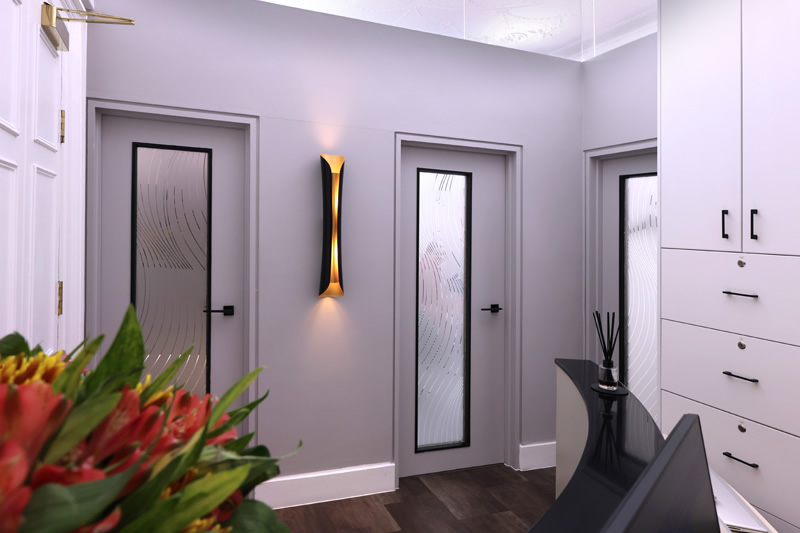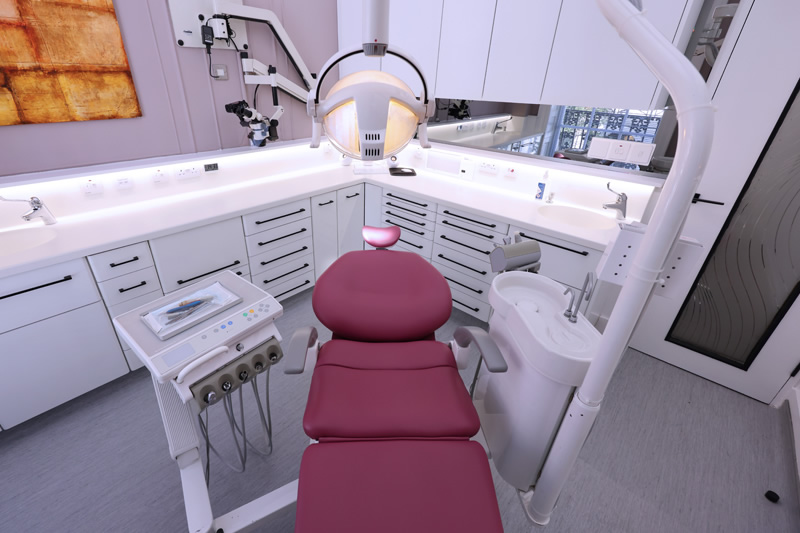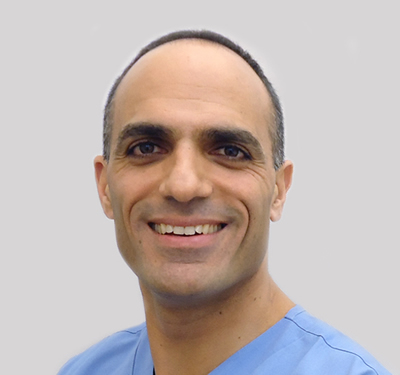-

Dental Implant Specialists
Get a stunning natural looking new smile
5-star rated practice
Over 30 years experience
Restore your smile
Get a stunning natural looking new smile
5-star rated practice
Over 30 years experience
Restore your smile
For most patients in our Harley Street clinic, the treatment period lasts around nine months. Once treatment begins, if due to any unexpected circumstances your treatment plan needs to change, these will be discussed with you and the fees adjusted accordingly before more treatment takes place.
To help you understand what will happen, we have created a step by step guide below of how our dental implant procedure works:
Your dental implant journey starts with this which is an initial examination and assessment with small x-rays. Impressions and photographs may also be taken for planning. We will have a discussion about different types of dental implants and also show you previous patient before & after photos.
The next step is to go for a CT scan which will provide our dentists with a perfect photograph of your teeth, nerves and bones.
After this we can then send you a comprehensive assessment of your teeth and potential treatment plan.
We may call you back in for a further appointment (free of charge) to discuss further.
If you decide to go ahead with your dental implants, an appointment is arranged where detailed records are taken and impressions for a surgical stent. The surgical procedure is discussed in detail and consent forms are read, explained and signed.
We need to make sure you have the cleanest mouth possible before treatment, so you would then arrange an appointment to see our hygienist.
Then it’s onto the surgical phrase of your treatment (you can read more information about this below).
One week after surgery you will come back for a review appointment and have you sutures removed.
After 3-4 months of healing the implants will be uncovered and impressions taken so that either your crowns, bridges or a denture can be made to replace your missing teeth which will be supported by and attached to the implants.
Your personally crafted new teeth will be fitted.







Our principal dentist and specialist prosthodontist, Dr Mehran Sanei (GDC No. 67683), who performs the implant treatments, is also recognised by the American Dental Association as a Specialist in Prosthodontics.
With over 30 years of extensive dentistry experience, he has also given national and international lectures on Cosmetics and Implantology. He has been an active member of the American Dental Society of London since 1999.
To book your implantologist consultation, please call us today on 020 7935 3914.
The treatment period lasts approximately nine months. Once treatment begins, if due to unforeseen circumstances the treatment plan were to change, this change will be discussed with you and the fees adjusted accordingly before treatment continues.
The surgical phase of your dental implant procedure will be carried out under local anaesthetic. The gum tissue will be opened to expose the underlying bone, into which a hole will be prepared, which will then intimately house the dental implant. The reflected gum tissue will then be stitched over and around the embedded implant. The procedure may also involve bone grafts (natural or artificial) to build up the ridge of the jaw and help in the placement and in securing the implants. You will then be prescribed medication (antibiotics and/or painkillers) as needed to help make after your procedure as comfortable as possible.
Healing will be allowed to proceed for a minimum period of 3-4 months. If for any reason the placement of the implant(s) does not work medically, our dentists will assess your situation and advise you accordingly as to what can be done.
If all goes well, the implants will be exposed, possibly with a second minor surgical procedure, and their integration to your bone will be tested. If this has been successful, the restorative phase will start. However, in the highly unlikely event of an implant failing to integrate fully, more healing time will be given, or arrangements will be made for its removal, and replacement with another implant at reduced cost. This second implant will have as good a chance to integrate as any other. Occasionally, supplemental minor surgical procedures might be carried out, in addition to the above, to improve soft tissue adaptation around the implant.
If you need any advice before or after surgery please don’t hesitate to contact our Harley Street Clinic. We want to ensure all our patients have the best care we can provide them with, so no question is too short or inappropriate as we always give our patients the time, care and consideration they need. Please read our advice below before your surgery commences.
The restorative phase will commence after full tissue maturation. With the aid of impressions, the position of the implants will be recorded, and a crown/bridge will be constructed which in turn will be supported by and attached to the implants.
Once the procedures are complete, a routine follow-up appointment will be made where any adjustments can be looked. Following this, regular dental check-ups and home care is essential for the long-term survival of these restorations. Implants and the supported restorations must be kept very clean at home, and regular hygiene and dental visits are a must.
You can find out more about the benefits of dental implants as well as the risks and complications on our site. You can also view some tooth replacement before and after photos of patients that we have treated. If you want to ask us any questions about dental implants please contact us.